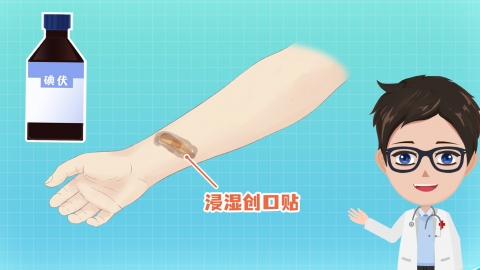What are the side effects of povidone-iodine disinfection?
Generally, povidone-iodine disinfection may have side effects such as contact dermatitis, pigmentation, impaired skin barrier function, delayed wound healing, and eye injuries. If discomfort or concerns occur, it is recommended to seek timely medical consultation and examination. Detailed explanations are as follows:

1. Contact Dermatitis
Some patients may develop contact dermatitis after using povidone-iodine, presenting symptoms such as skin redness, itching, and stinging. This is usually caused by irritation or allergic reactions to certain components in povidone-iodine.
2. Pigmentation
The iodine in povidone-iodine may leave yellow or brown pigmentation on the skin surface, especially when used repeatedly or over a prolonged period on the same area. Generally, pigmentation fades gradually over time, although it may take a long time.
3. Impaired Skin Barrier Function
Povidone-iodine is a strong oxidizing agent. Frequent or excessive use may damage the skin's natural barrier function, causing dryness, fragility, and increased susceptibility to external irritants and infections.
4. Delayed Wound Healing
Although povidone-iodine has antibacterial properties, excessive or overly frequent use for wound disinfection may interfere with the normal healing process. This is because povidone-iodine might inhibit the growth and division of surrounding cells, thus affecting the speed of wound healing.
5. Eye Injury
If povidone-iodine accidentally gets into the eyes, it may cause severe irritation, resulting in symptoms such as eye pain, tearing, and swelling. In severe cases, it may damage the cornea and conjunctiva, affecting vision.
When using povidone-iodine, follow medical advice or the instructions provided with the product regarding dosage and application methods. Avoid excessive or overly frequent use.









